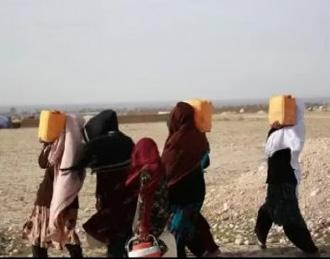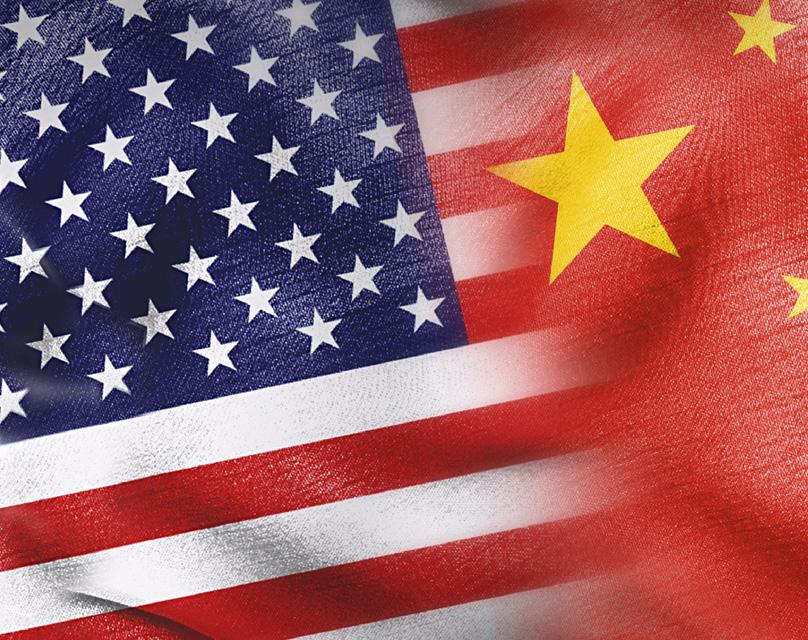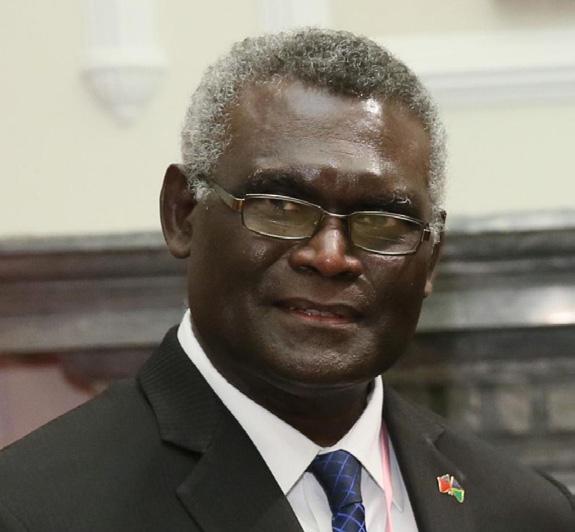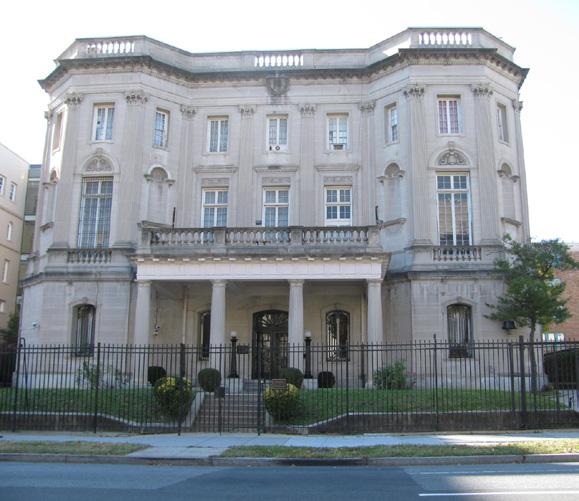
8 minute read
WORLD THIS WEEK
In collaboration with National Institute for Advanced Studies, Bengaluru
Authored by Rohini Reenum, Padmashree Anandhan, Anu Maria Joseph, Femy Francis, Dhriti Mukherjee and Shamini Velayutham
China: Accused of international media manipulation by the US

On 28 September, the US State Department accused China of manipulating the international media via censorship, data harvesting and covert purchases. The report warned of repercussions stating that this will affect the global freedom of expression. With the rise of Chinese aggression and competition, Beijing has intensified its efforts to clean its negative image. It claimed that China has invested in satellite networks and services to further the state-backed media. With its global footprint, China has been able to data harvest overseas, facilitating its censorship efforts. China: Refuses to expand support for some CPEC proposals by Pakistan
On 26 September, an editorial in The Express Tribune “CPEC expansion plan in doldrums,” on the state of China and Pakistan’s economic ties as China did not agree to further their bilateral cooperation in areas of energy and water management. They expressed that Islamabad left its opposition to set up a coalpowered plant in Gwadar and that China refuses to agree to measures proposed by Pakistan. The negotiations signed upon largely exclude provisions proposed by Pakistan like the issue of financial challenges faced by power companies. They also advised that the imported fuelbased Gwadar plant converts to Thar coal. The Planning Ministry called the ratification of the 11th JCC meeting a testament to their strong cooperation while the iron-clad friendship is seeing strains.
Australia: Prime Minister of Solomon Islands criticizes US approach to Pacific

On 27 September, Solomon Islands Prime Minister Manasseh Sogavare criticized the US for
lecturing Pacific leaders and suggested a rethink of the Pacific Leaders' Summit. He declined US President Joe Biden's invitation to the summit. While initially citing "domestic issues," he later stated that preparations for the parliamentary session in Honiara were more important. It is raising concerns about his growing alignment with China. Sogavare praised China's development role and Belt and Road initiative during his UN speech. China's "positive feedback" has resulted in transformative changes, he noted. Meanwhile, Chinese naval officers visited Papua New Guinea during a goodwill visit.
Pakistan: Pakistan has decided to deport over 1 million Afghans
On 26 September, the caretaker government in Pakistan has decided to repatriate over 1.1 million Afghanis who have been living in Pakistan illegally reported Wion. The decision was taken by the caretaker cabinet. The repatriation will be done in three phases according to the status of the Afghanis residing in the Pakistani territory. In the first phase, those without proper documents and lapsed visas will be deported. The second phase will deal with the status of Afghani citizens and the third will look at proof of residence card holders.
Afghanistan: Pakistani police continue to detain Afghan refugees

On 24 September, the consul of the Islamic Emirate in Karachi, Abdul Jabar Takhari claimed that hundreds of Afghan refugees have been detained over the last 15 days by the Pakistani police. He pegged the number of detentions at more than 900 and stated that 200 of them have been released because of the efforts of the consulates. He further requested the Pakistani government to stop detentions of Afghani refugees that are registered. In response, the Caretaker Government of Pakistan has ordered authorities in Khyber Pakhtunkhwa to not disturb Afghan refugees.
Israel: Israeli Prime Minister Benjamin Netanyahu on the India-Middle East-Europe Economic Corridor
On 27 September, Benjamin Netanyahu, the prime minister of Israel, described the unveiling of the ambitious India-Middle East-Europe Economic Corridor (IMEC) as "major news" for Israelis and described it as the "largest cooperation project in our history" that will change the Middle East, Israel, and the entire globe for the better. Israel is aware that this would significantly affect its economy. It might enable it to catch up economically to the Gulf and integrate with the region as a whole, enhancing ongoing normalization and giving the process a long-term perspective.
On 23 September, the leaders of the US, India, Saudi Arabia, the United Arab Emirates, France, Germany, Italy, and the European Union jointly announced the new economic corridor, which many see as a rival to China's contentious Belt and Road Initiative (BRI). This was done in New Delhi on the last day of the G20 summit.
Israel: Historic trips to Saudi Arabia and Israel as normalization negotiations advance
On 26 September, the first high-level Saudi delegation to visit the occupied West Bank since Israel seized control of it from Jordan in the 1967 war. According to his office, Haim Katz was the first Israeli minister to head a group of government representatives to the Gulf state. The historic trips happen after Saudi and Israeli officials praised efforts to forge diplomatic ties. Recent complicated negotiations between its two regional partners have been mediated by the US. A settlement between the major players would represent a sea change in Middle Eastern affairs and offer US President Joe Biden a significant diplomatic win. Nayef al-Sudairi, ambassador to Jordan and Saudi Arabia's first official representative to the Palestinians, visited the West Bank. In its statement, the Palestinian foreign ministry hailed the development as "an historic milestone" in ties with Saudi Arabia.Mr. Sudairi attempted to comfort Palestinians about the situation when speaking to journalists. The ambassador said that the crown prince's support for the Palestinian cause is hardly entirely novel. He cares deeply about the stability and safety of the entire area and the entire world since this benefit everyone on the planet.
Ukraine: NATO Secretary General visits Kyiv
On 28 September, NATO Secretary General Jens Stoltenberg visited Kyiv. He reaffirmed NATO’s strong support for Ukraine. He commended the leadership of Ukrainian President Volodymyr Zelenskyy and Ukraine’s progress in its counteroffensive. He said:
"Ukrainians are fighting for their families, their future, their freedom; Moscow is fighting for imperial delusions." Stoltenberg highlighted NATO’s commitment to Ukraine’s membership and three key decisions to enhance cooperation. He emphasized NATO’s collective efforts in providing military support and joint procurement initiatives. Stoltenberg welcomed Ukraine’s peace plan and stated, “Ukraine's future is in NATO.” He paid respects at the Wall of Remembrance for Ukraine’s fallen heroes and reaffirmed NATO’s unwavering solidarity.
Cuba: Attack with Molotov cocktails on the Cuban embassy in Washington, DC

On 26 September, according to Cuba's Foreign Minister Bruno Rodriguez Parrilla, an attacker used two Molotov cocktails to attack the Cuban Embassy in the capital city of the United States, Washington, DC. No one was harmed, he added. Just hours after Miguel Diaz-Canel, the leader of Cuba, arrived back on the island after attending meetings at the UN in New York, the attack took place on 22 September in the late hours. According to Cuban officials, the attack didn't result in any major losses or injuries, but Havana promptly placed the blame on the country's exiled Cuban population in the US. No one claimed credit for the attack. Although there are often demonstrations outside foreign embassies in Washington, DC, attacks are uncommon, and the US consistently denounces instances that have an impact on its missions abroad.
Guatemala: Guatemalan landslides caused by heavy rain resulted in six deaths and 12 missing

On 25 September, A flooded river in Guatemala City washed away homes, leaving at least six people dead and 12 others missing. On 23 September, according to Guatemala's National Coordination for Disaster Reduction agency (CONRED) flooding from the Naranjo River poured into the shantytown of Dios es Fiel, or God is Faithful, in Guatemala City, destroying at least six homes that had been perched under a bridge. Six bodies were found by search dogs and recovery crews in the floodwaters, including a small girl, who was thought to be around five years old.
US: Major US politician demands for the suspension of millions of dollars in aid to Egypt
On 27 September, In the midst of mounting calls to cut funding, a prominent Democratic member in the US has recommended halting hundreds of millions of dollars in help to Egypt due to concerns about human rights. Gregory Meeks, the leading member of the House Foreign Affairs Committee, claimed that members' standards for Egypt's eligibility for aid in terms of respecting human rights were not met. Of the USD1.3 billion Cairo receives annually from Washington, USD 320 million was subject to human rights conditions set by US Congress. However, the Joe Biden administration relaxed the restrictions earlier this month on the grounds that the support serves US national interests. Only USD 85 million was ultimately withheld.
US: 'Global information manipulation' by China endangers liberties says US

On 26 September, following the publication of the Global Engagement Center’s report the State Department spokesperson said in a statement that Beijing has spent billions of dollars creating a worldwide information ecosystem that supports its propaganda, enables censorship, and spreads misinformation. In the report, Beijing tried to sway foreign opinion and "bend the global information environment to its advantage" by employing a variety of "deceptive and coercive methods." According to the United States, China is engaging in a massive effort that involves persuasion, censorship, and disinformation that costs billions of dollars annually and may endanger international freedoms.
The report has been modified by Australia India News for space considerations.










